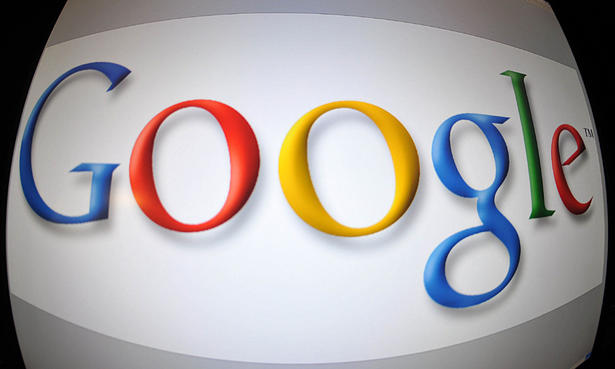
(FILES)This January 11, 2011 screen imageshows the Google logo in Washington,DC. Google is in preliminary talks to acquire the online video site Hulu, the Los Angeles Times reported on its website on July 1, 2011, citing anonymous sources familiar with the discussions. Hulu’s owners have met with Google and other prospective buyers including Yahoo! and Microsoft, the newspaper reported. The site, which broadcasts television shows through on-demand streaming, is owned by a trio of traditional media giants — Disney, NBC Universal and News Corp. — and private equity firm Providence Equity Partners.AFP PHOTO/KAREN BLEIER (Photo credit should read KAREN BLEIER/AFP/Getty Images)
KAREN BLEIER/AFP/GETTY IMAGES
WASHINGTON — Google’s loss in bidding for the $4.5 billion (U.S.) portfolio of Nortel Networks Corp. patents last week means the Internet-search company will be looking to buy other inventions to build a bulwark against lawsuits targeting its Android system, patent brokers say.
“There are a lot of phenomenal portfolios for sale,†said Dean Becker, chief executive officer of ICAP Patent Brokerage in Palm Beach, Fla., the world’s largest patent seller. “Every operating company is in the market because of the expense, distraction and the potential financial risk of patent litigation.â€
Google, with $36.7 billion (U.S.) in cash and securities as of March, is ramping up efforts to obtain patents to create what it calls a disincentive for companies to sue amid “an explosion†in litigation. Last month’s Nortel auction, the biggest of its kind, followed Google’s $900 million (U.S.) offer in April to buy the more than 6,000 patents owned by the Canadian phone-equipment maker that filed for bankruptcy protection in 2009.
While Google took itself out of the running as bidding prices rose, the company will keep searching for opportunities, mainly for patents related to smartphone technology, said Ron Epstein of Epicenter IP Group, a Redwood City, Calif.- based patent brokerage not involved in the auction.
“Assuming they were willing to spend at least the $900 million of their initial offer to achieve the result they were after, they’re going to get there,†Epstein said in an interview. The Nortel portfolio was viewed as “a unique asset that could never be repeated. That’s just not true,†he said.
Winning the Nortel portfolio, which went to a group led by Cupertino, Calif.-based Apple, would have boosted Google’s patent holdings almost ninefold from at least 701 today, according to U.S. Patent Trademark Office records. The increase would have given Mountain View, Calif.-based Google more ammunition against lawsuits, which have increased since the world’s largest Internet-search company moved into areas such as mobile and desktop operating systems to broaden sales.
Oracle Corp. has sued Google directly, and Apple has gone after makers of phones that use Google’s Android mobile operating system, including HTC Corp. and Samsung Electronics Co. Microsoft Corp. also has demanded licensing revenue from makers of products that run on Android, and has filed a trade complaint seeking to block U.S. imports of Barnes Noble Inc.’s Android-based Nook reader.
The Android system introduced in 2007 is an open source program that relies on some nonproprietary features Google didn’t create and allows outside developers to modify the code.
“They find that, as you enter markets where there are other smart people spending lots of RD dollars, you are going to use other people’s innovations,†Epstein said. “When it comes to buying access to the innovations, you need a coin to trade for that. They find that, ‘Damn, I’m going to have to obtain my own portfolio, so I can engage in the innovation negotiation market.’ â€
While the company wouldn’t comment for this story, Google executives have criticized the challenges of patent lawsuits.
In an April 4 blog posting, Google General Counsel Kent Walker described “an explosion of patent litigation, often involving low-quality software patents†and said the Nortel bid was going to discourage lawsuits against Google.
“One of a company’s best defenses against this kind of litigation is (ironically) to have a formidable patent portfolio,†Walker said in the blog post.
In a July 1 email he called the announcement of Google being outbid “disappointing for anyone who believes that open innovation benefits users and promotes creativity and competition.â€
The winning group included some Apple competitors-turned-partners: Microsoft, Research In Motion Ltd., Sony Corp., Ericsson AB and EMC Corp., according to a Nortel statement.
In Oracle’s patent- and copyright-infringement lawsuit in federal court in San Francisco, the enterprise-software company claims Google copied technology related to the Java programming language and is seeking as much as $6.1 billion. Separately, Skyhook Wireless Inc., which makes location-finding software for the iPhone and other mobile devices, has accused Google of interfering with Skyhook contracts and infringing its patents.
Google hasn’t filed any countersuits against Oracle or Skyhook. Instead it’s basing its defenses mainly on challenging the patents or denying infringement. The company has also urged changes through court filings and by lobbying Congress to make it easier to challenge patents.
“Questionable patents do not foster innovation,†Google wrote in a February filing on behalf of Microsoft’s failed bid to make it easier to invalidate patents at trial. “Instead, they block and impair others from innovating.â€
Article source: http://www.thestar.com/business/companies/google/article/1021236--google-left-searching-for-patent-ammunition-after-nortel-loss
